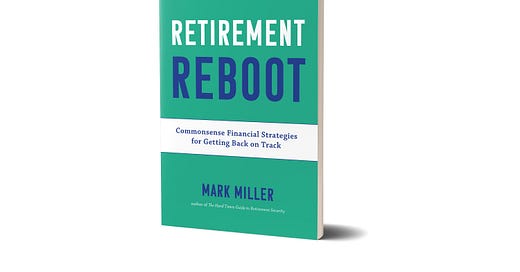What does the new Social Security forecast mean for retirees?
If last week's trustee report jangled your nerves, take a deep breath
The forecast for Social Security got a bit more cloudy last week, with the program’s trustees projecting that the critical retirement program will run short of cash one year earlier than had been forecast last year.
But if the headlines stemming from the annual report of the Social Security trustees jangled your nerves, take a deep breath.
The report, released on March 31, forecasts that the Social Security retirement trust fund reserves will be depleted in 2033. A separate report found that Medicare's financial situation improved a bit last year.
But Social Security finished 2022 with $2.7 trillion in reserves, and it can pay full benefits for another 10 years, according to the report. Still, the program is on course for sharp across-the-board benefit cuts in 2033, absent action by the U.S. Congress.
What does the new Social Security forecast mean for current and future retirees? In my Reuters column this week, I discuss the key questions to consider.
Here are a couple other recent stories I’ve published on Social Security reform:
Fixing Social Security and Medicare: Where the parties stand (New York Times
Why Gen Xers and millennials should be following the U.S. Social Security debate (Reuters)
Toward a new social insurance era (This is an excerpt from my book, Retirement Reboot, published by WealthManagement.com)
Retirement Reboot streaming
I talked recently with Ron Roel, host of the 45 Forward podcast, about Retirement Reboot. We chatted about longevity risk, the shift from traditional pensions to 401(k)s, Social Security reform and more. Click here to listen.
Also, the six-part podcast series on the key themes of my new book is now online. I hope you’ve enjoyed all of these conversations with experts on key retirement topics, but in case you missed any of them, here are links. You can also subscribe on Apple Podcasts or Spotify (search “Retirement Revised”).
You’ll find engaging discussions on the importance of making a plan for retirement, optimizing Social Security, navigating Medicare and much more.
What I’m reading
Federal government delays crackdown on Medicare Advantage . . . Robots are on deck to care for the elderly in Italy . . . How to use the SHIP network for Medicare advice . . . Older adults are obsessed with these five tech topics . . . Among patient needs: a medical escort home . . . Swimming with 80-year-olds is where she like to be . . . Millions on Medicaid may lose protections as pandemic expansion ends . . . How to navigate the unwinding of Medicaid.



